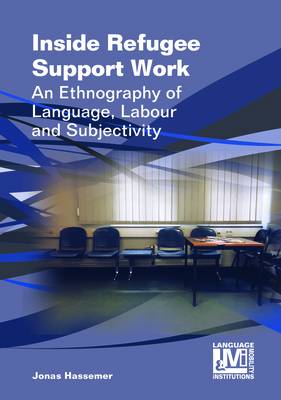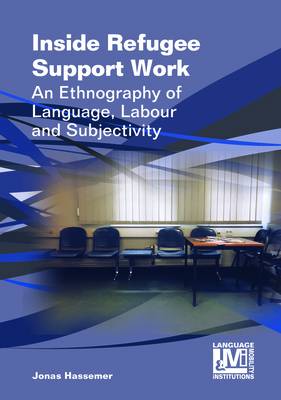
- Afhalen na 1 uur in een winkel met voorraad
- Gratis thuislevering in België vanaf € 30
- Ruim aanbod met 7 miljoen producten
- Afhalen na 1 uur in een winkel met voorraad
- Gratis thuislevering in België vanaf € 30
- Ruim aanbod met 7 miljoen producten
Omschrijving
Presents a situated, ethnographically grounded, sociolinguistic critique of politics of difference and inequality in contemporary Central Europe.
This book explores the construction of 'languaged' and professional subjectivities in the context of refugee support work in Austria. It presents ethnographic insights into how language and linguistic practice come to matter both as part of a migration infrastructure in transformation, and in the efforts within a particular institution to reinvent itself as it struggles for survival in the context of shrinking public and state support for refugee provision.
The author focuses on how transformation processes play out in counsellors' and volunteer interpreters' conceptions of themselves as professionals and speaking subjects when confronted with the political and ethical dilemmas of an increasingly precarised work context. It becomes clear that language, while being central to the services offered, remains a sign of Otherness in a 'languaged' instutional order.
Specificaties
Betrokkenen
- Auteur(s):
- Uitgeverij:
Inhoud
- Aantal bladzijden:
- 300
- Taal:
- Engels
- Reeks:
- Reeksnummer:
- nr. 7
Eigenschappen
- Productcode (EAN):
- 9781800412835
- Verschijningsdatum:
- 14/04/2026
- Uitvoering:
- Hardcover
- Formaat:
- Genaaid
- Afmetingen:
- 149 mm x 210 mm

Alleen bij Standaard Boekhandel
Beoordelingen
We publiceren alleen reviews die voldoen aan de voorwaarden voor reviews. Bekijk onze voorwaarden voor reviews.







